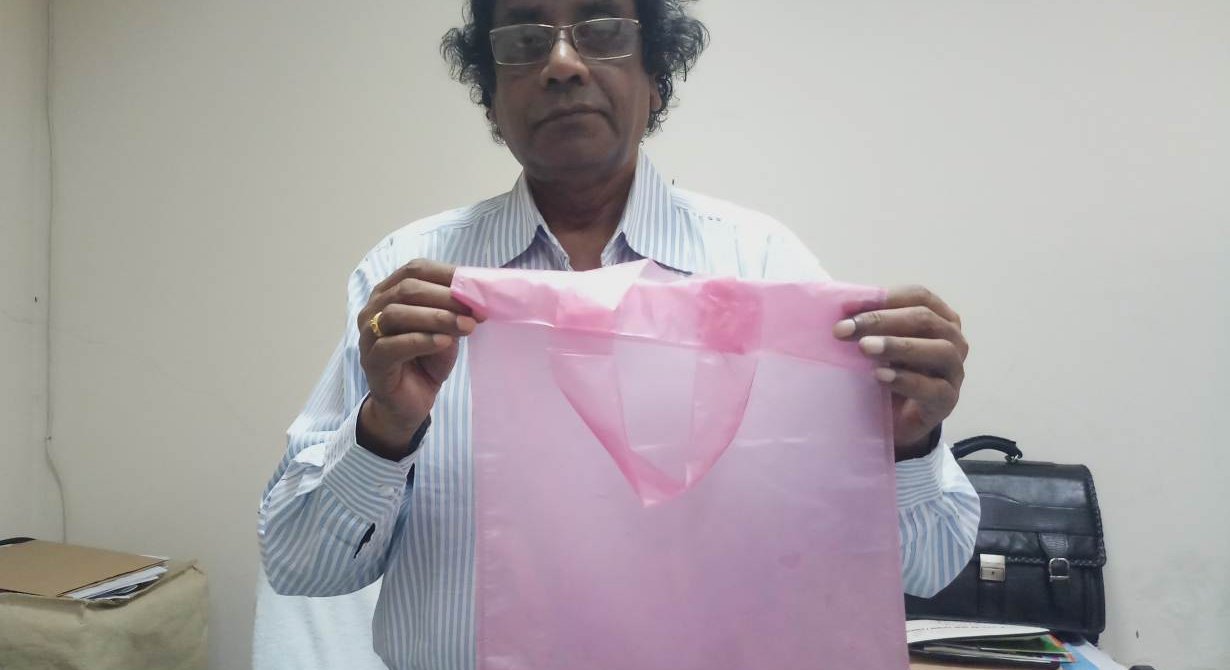
Thomson Reuters Foundation/Rafiqul Islam
As countries around the planet try to cut down on throw-away plastic shopping bags, Bangladesh hopes to cash in on an alternative: plastic-like bags made from jute, which is the plant fiber used to produce burlap bags.
Bangladesh is the second biggest producer of jute in the world after India, though the so-called "golden fiber" — named by its color and its once-high price — has now lost its sheen as demand has fallen.
Nevertheless, a Bangladeshi scientist has found a way to turn the fiber into low-cost biodegradable cellulose sheets which can be made into greener throw-away bags that look and feel much like plastic ones.
Bangladesh is currently producing 2,000 of the bags a day on an experimental basis, yet plans to scale up to commercial production after signing an agreement in October 2018 with the British arm of a Japanese green packaging firm.
Reportedly Bangladesh Prime Minister Sheikh Hasina in March urged these working on the project "to help expedite the wider usage of the golden bags" for both economic and environmental gains, according to Global Citizen.
In April 2019, the government approved approximately $900,000 in funding from Bangladesh's climate change trust fund to help pave the way for large-scale production of the bags.














COMMENTS